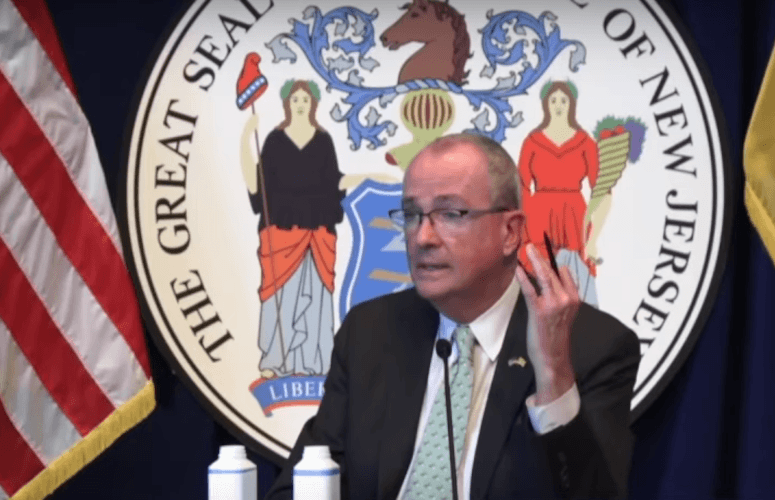
The Workplace Vaccination Equation
Businesses are advised to consult attorneys and exercise caution before taking specific actions in the realm of employee vaccinations.
By George N. Saliba, Contributing Writer On Aug 6, 2021Garden State businesses have grappled with an array of coronavirus-related executive orders and other regulations since the pandemic first hit the state last year, and companies continue to navigate yet another of the pandemic’s hurdles: How to address employee COVID-19 vaccination status in the workplace without running afoul of employment laws.
Underscoring the developing nature of the much broader COVID-19/business landscape, Michael A. Shadiack, chair of the labor and employment department at the law firm of Connell Foley, says, “The guidance changes so quickly. Employers have to stay on top of it as it develops. They need to either have someone in their organization staying on top of it for them, or an outside employment attorney who is advising them of the update.”
Not Mandating Vaccination
In the specific realm of vaccinations, employers might be divided into at least two categories: Those that do not mandate vaccination, and those that do mandate vaccination. For those not mandating vaccination, employers can simply ask whether employees have been vaccinated and/or ask for proof of vaccination.
Shadiack says, “Can an employer ask an employee, ‘Have you been vaccinated?’ Yes. Can an employer ask an employee for a copy of their vaccination card? Yes. If an employee chooses not to produce it, or chooses not to get vaccinated, we don’t want employers asking – and the law does not want employers asking the employee – ‘Well, why not?’ because that opens the door for a discussion as to a potential disability.” He stresses that employees’ medical information is confidential.
Shadiack adds, “What if an employer does not mandate the vaccine, and you have [a worker] say, ‘My personal decision is I will not get the vaccine.’ What can the employer do then? There’s nothing the employer can do in that situation. You are not going to fire the [employee].”
Mandatory Vaccination
However, if a business has chosen to mandate vaccination, then workers have only a few types of valid objections: They are not getting the vaccine due to a bona fide medical reason or pregnancy, or they are not getting it because of a sincerely held religious belief. In either of those cases, attorneys say this would necessitate a process to determine, in effect, the validity of the employees’ objections.
Maja M. Obradovic, co-chair of the employment department at the law firm of Greenbaum, Rowe, Smith & Davis LLP, says, “There has to be some dialog back and forth to ascertain that the asserted reason for not being vaccinated is genuine. Employers are generally allowed in that scenario to ask for doctors’ notes and an explanation as to the disability; they can inquire [about] the religious beliefs that preclude persons from being vaccinated, and so on.”
Attorneys say there is also the matter of whether the business can then provide reasonable accommodations for these employees without the business suffering undue hardship or having those employees create a “direct threat” to others in the workplace. The latter involves guidance set forth by the U.S. Equal Employment Opportunity Commission (EEOC).
Of mandating vaccines overall, Connell Foley’s Shadiack says, “You’ve got to be careful what you wish for. It is easy to put a mandate in place. Basically, you issue a memo. The harder part in the analysis is thinking down the road about the ‘what if’ scenarios. What if the person objects on a valid basis? What if we can’t accommodate that individual, or it presents an undue hardship? What if that employee poses a direct threat to the others? What are we going to do? Are we going to actually fire that employee? And if we are going to fire an employee, then we really need to fire everyone in that situation, and not pick and choose who we are going to fire, because that could result in a discrimination lawsuit.”
He elaborates: “’Why did you fire Phil, but you didn’t fire Jane?’; ‘Why did you fire the African-American worker, but you didn’t fire the Caucasian worker?’ If you are going to have a policy or protocol in place, it’s got to be applied equally to everyone – and consistently – or you’re inviting a potential discrimination claim.”
Shadiack also says, “I think the other thing [employers] have to consider is: If they are a workplace that has been allowing the employees into work, all along, throughout the pandemic – when nobody was vaccinated – why now, if a portion of the workplace has been vaccinated, would the decision be made: Well, if you are unvaccinated, you pose a threat to the workplace?’ How can that threat be any greater or more significant than the threat that was posed when nobody was vaccinated?”
Many employers have indeed chosen not to mandate vaccinations for their workforces, and instead are encouraging their employees to become vaccinated by offering vaccine education, for example. Recent Occupational Safety and Health Administration (OSHA) guidance even says that employers should “grant paid time off for employees to get vaccinated.”
Overall, Shadiack says, “When I am asked of a client what is my suggestion or approach, I’ll suggest going the route of strongly encouraging – rather than requiring – vaccination. I just think it avoids a lot of legal issues for the employer.”
Overall Approaches
Since laws can be complicated even for the most seemingly simple protocols, employers should always consult with attorneys especially since, again, the rules may change. Christopher S. Mayer, a partner at the law firm of McCarter & English, LLP, speaks about COVID-19 laws affecting businesses, overall: “From the very beginning, we have told all our clients to be very flexible, and obviously there’s a reason for that: Policies that would work one day have become a moot point a month later, as things continue to evolve throughout this time.”
He adds, “It’s been a tough period for employers to stay on top of everything. Just having bright-line policies hasn’t worked well.”
That said, Mayer says questions for attorneys have generally slowed down because employers have been following COVID-19 safety protocols in their workplaces for such a long time that “they know what to do.”
With COVID-19 infection rates low in New Jersey at this time, it remains unclear if a complete pre-pandemic scenario will reemerge in both business and society, or whether coronavirus variants might disrupt the progress the state has thus far made. In any event, attorneys stand ready to assist their business clients with vaccine-related and/or other support.
Healthy Business Certification Gives Employees, Customers Peace of Mind
This fall, thousands of New Jersey employees who had been working remotely during the pandemic will be returning to their workplaces on either a full-time or hybrid schedule. Knowing that not all employees and customers are vaccinated against COVID-19, business owners need the latest information from experts on keeping their workplaces healthy and safe. That’s where NJBIA can help.
NJBIA, in partnership with Hackensack Meridian Health, offers the NJBIA Healthy Business Certification Course, which provides employers with the resources to keep their workforce healthy and productive by identifying, reducing and eliminating risks. Hundreds of New Jersey employers have taken the course so far and more than 125 have already received their healthy business certification.
The three-hour course covers best practices for cleaning and disinfection, on-site health screenings, personal protective equipment (PPE), social-distancing strategies, protocols for isolating employees who become ill at work, and more. Businesses work directly with SHRM-certified instructors to develop workplace health and safety procedures derived from the latest guidance from the U.S. Occupational Health and Safety Administration (OSHA), the U.S. Centers for Disease Control and Prevention (CDC) and the World Health Organization (WHO).
Participating businesses also are given free access to Hackensack Meridian Health’s Keeping America Safe Assist program for one year, which includes a hotline to get answers from HMH medical experts, an online resource center, and weekly briefings providing reliable local and global news about the pandemic. To learn more about the NJBIA Healthy Business Certification course, go to www.njbia.org/njbiasafe.
To access more business news, visit NJB News Now.
Related Articles:





